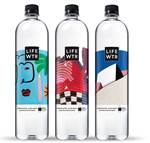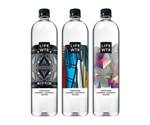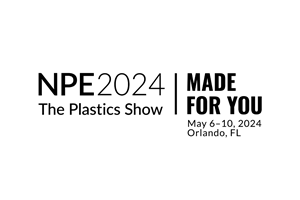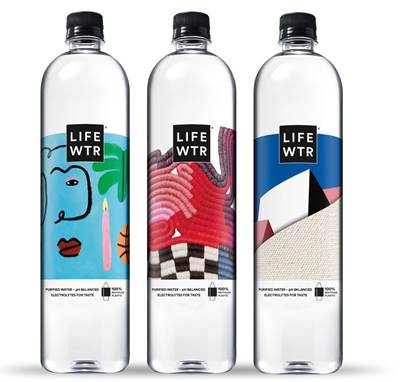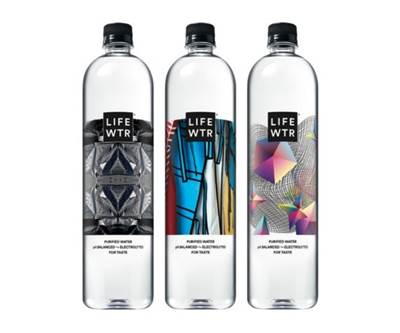U.S. Plastics Pact Focuses on Creating a Circular Economy for Plastics
A key target is taking actions to effectively recycle or compost 50% of plastic packaging by 2025.
The U.S. Plastics Pact, a collaborative led by The Recycling Partnership and World Wildlife Fund (WWF), launched as part of the Ellen MacArthur Foundation's global Plastics Pact network. This is an initiative to unify diverse public-private stakeholders across the plastics value chain to rethink the way we design, use, and reuse plastics, to create a path toward a circular economy for plastic in the United States.
In line with the Ellen McArthur Foundation's vision of a circular economy for plastic, which unites more than 850+ organizations, underpinned by common definitions and concrete targets, the U.S. Plastics Pact brings together plastic packaging producers, brands, retailers, recyclers, waste management companies, policymakers, and other stakeholders to work collectively toward scalable solutions tailored to the unique needs and challenges within the U.S. landscape, through vital knowledge sharing and coordinated action.
As of August 25, more than 60 Activators – including for-profit companies, government agencies, and NGOs – have joined the U.S. Plastics Pact, representing each part of the supply and plastics manufacturing chain. By joining the U.S. Plastics Pact, Activators agree to collectively deliver these four targets:
- Define a list of packaging to be designated as problematic or unnecessary by 2021 and take measures to eliminate them by 2025.
- By 2025, all plastic packaging is 100% reusable, recyclable, or compostable (to learn more about how some brands are already working toward this goal, check out this May feature).
- By 2025, undertake ambitious actions to effectively recycle or compost 50% of plastic packaging.
- By 2025, the average recycled content or responsibly sourced bio-based content in plastic packaging will be 30%.
Results of measurable change in each of the target areas and transparent reporting are key outcomes of the U.S. Plastics Pact. Progress of the U.S. Pact will be tracked through WWF's ReSource: Plastic Footprint Tracker, which provides a standard methodology to track companies' plastic footprints and publicly report on of their plastic waste commitments each year. The report will be made publicly available each year.
The Association of Plastic Recyclers (APR) has joined the U.S. Plastics Pact. APR President and CEO Steve Alexander, who sits on the pact's advisory council, called it the "single most important effort to address the growth and sustainability of plastics recycling in the past 20 years. This effort will ensure that brand companies will be publicly held to achieve the sustainability commitments they have made," he said.
"There has never been another program like this.”
The Institute of Scrap Recycling Industries (ISRI) announced it has joined the U.S. Plastics Pact.
“As the voice of the recycling industry, ISRI is proud to be a founding member of the U.S. Plastics Pact,” said ISRI Vice President of Advocacy Adina Renee Adler. “The pact underscores ISRI’s long-standing efforts to inspire stakeholders throughout the plastics and recycling supply chains to commit to responsibly manufacture, collect, and recycle plastics and plastic products.”
“ISRI’s Design for Recycling principles encourage companies to proactively consider the ultimate destiny of their products during the design-stage of a product’s development,”Adler said. “Combining U.S. Plastics Pact goals with ISRI’s Design for Recycling principles should inspire producers to design with recycling in mind and to incorporate more recycled plastics in the manufacture of new products.”
Keith Christman, managing director of plastic markets for the American Chemistry Council said in a statement:
“At the American Chemistry Council, America’s Plastic Makers are committed to making sure all plastics packaging in the United States is reused, recycled or recovered by 2040. Advancing the U.S. recycling system and creating a more circular economy for plastics will require collaboration between resin manufacturers, converters, brands and retailers as well as waste management companies and recyclers.”
“We encourage the signatories of the new U.S. Pact to work toward furthering circularity for plastics by modernizing recycling infrastructure and working to reduce plastic waste. Ending plastic waste will require a variety of solutions including advanced recycling, which converts plastics into a range of useful products while also offering significant economic opportunities.”
“As part of America’s Plastic Makers’ actions to enhance plastics circularity, we look forward to collaborating with the Pact signatories, supply chain participants, policy makers, and other groups that share our commitment to a solutions-oriented, more sustainable model for plastics and a circular economy future. We are encouraged by the over $5.2 billion in announced new investments in plastic recycling over the last three years. Eighty percent of these announcements are advanced recycling facilities, which will be essential to meeting recycled content goals.”
Amcor has also joined the U.S. Plastics Pact, a collaborative, solutions-driven initiative to create a path forward to a circular economy for plastics in the U.S. by 2025.
“As a global leader in the packaging industry, Amcor’s colleagues continuously push themselves and others to achieve more, to understand challenges and advance transformational change,” said Eric Roegner, president of Amcor Rigid Packaging. “We are already working with customers to increase recycled materials in packaging and increase recycling rates worldwide. The goals of the U.S. Plastics Pact are closely aligned with Amcor’s own sustainability agenda and we can leverage our in-depth industry expertise and resources at scale to advance the transition to a circular economy.”
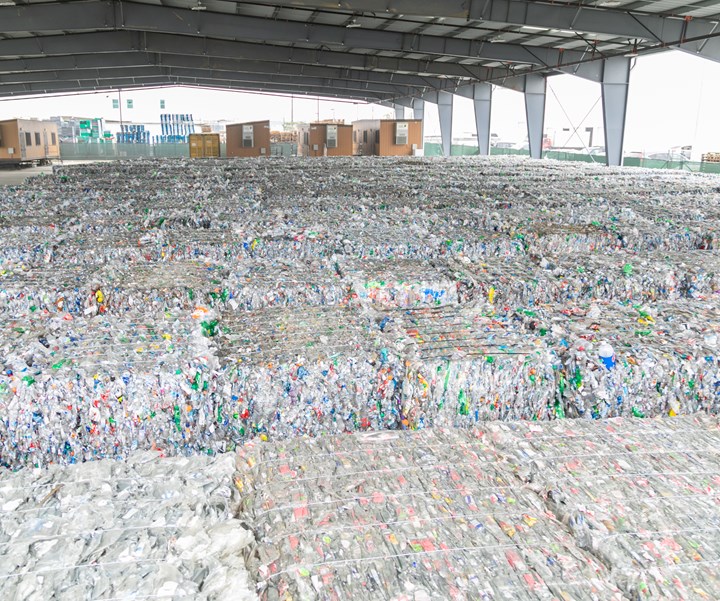
Bales at rPlanet Earth in California.
Related Content
Plastics Processing Activity Contraction Continues in August
Four months of consecutive contraction overall.
Read MoreProcessing Megatrends Drive New Product Developments at NPE2024
It’s all about sustainability and the circular economy, and it will be on display in Orlando across all the major processes. But there will be plenty to see in automation, AI and machine learning as well.
Read MorePlastics Processing Index Remains Virtually Unchanged
Future business indicators rose again this month, but other inputs changed only slightly.
Read MoreNPE2024 and the Economy: What PLASTICS' Pineda Has to Say
PLASTICS Chief Economist Perc Pineda shares his thoughts on the economic conditions that will shape the industry.
Read MoreRead Next
Leading the Charge: Brand Owners Moving to Boost Recycled Content in Packages, Products
Leading brand owners and a big-box retailer discuss their recycling goals, which will impact processors and the entire supply chain.
Read MoreUnder One Roof: Innovative Recycler Closes the Loop
rPlanet Earth looks to disrupt the plastics recycling industry by creating a truly sustainable, closed-loop system for recycling and reuse of post-consumer plastics, with reclaim, sheet extrusion, thermoforming and preform making all in the same plant.
Read MoreAmerica's Big Beverage Companies Announce New Recycling Initiative
Through the Every Bottle Back initiative, beverage companies are stepping up efforts to reclaim as much plastic packaging as possible to ensure it is remade into new PET bottles.
Read More

